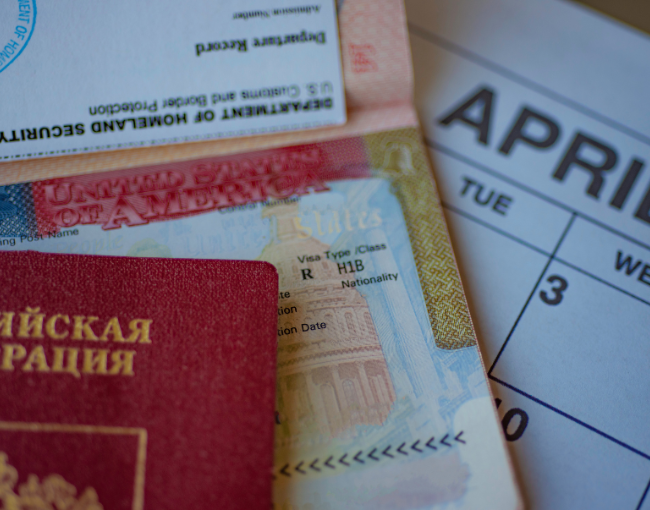Home > Insights > Publications > H-1B Cap Lottery Season Has Arrived. Act Quickly Before the Window Closes!
The popular H-1B employment visa allows U.S. employers to sponsor foreign talent for work involving a “specialty occupation.” That is, a position that requires the theoretical and practical application of a body of highly specialized knowledge and at least a bachelor’s or foreign degree equivalent in a specific field of study as a minimum requirement for entry into the position. The H-1B is one of the most coveted visas for hiring professional foreign workers, including recent college and university graduates, in fields like computer science, software development, technology, engineering, architecture, finance, supply chain, health care, sciences, and teaching/research.
U.S. employers should consider taking advantage of the benefits associated with sponsoring foreign talent through the H-1B visa program. Employment may be at-will, meaning that either the employer or employee can decide to end employment at any time and for any reason or no reason. H-1B visas are generally valid for up to six years and usually approved in intervals of three years. This provides employers an opportunity for an “extended interview” of the foreign talent without any obligation to continue sponsorship past the initial three-year visa approval. If the employer decides to not renew visa sponsorship after the foreign worker has completed their approved period of employment authorization or if the foreign worker leaves the employment early, the employer has no additional monetary obligation toward the foreign worker other than paying their wage through the last date of employment. If the employer ends the employment relationship early, the sole monetary obligation it has is to provide the foreign worker with the cost of a one-way airline ticket to return to their country of foreign residence. Employers should also notify the USCIS regarding the termination. Employers are not obligated to provide housing to foreign talent under the H-1B visa program. In many instances, there is no language barrier because the foreign talent has received their most recent education in the U.S. Employment is permitted to be remote, however, the foreign worker must be based inside the U.S. Importantly, sponsoring foreign talent for an employment-based visa like the H-1B offers an opportunity to diversify your workforce.
U.S. employers must act quickly to take advantage of the H-1B visa program. With a limited amount of H-1B visas available each fiscal year and a demand for this visa that far exceeds its supply, U.S. Citizenship and Immigration Services conducts an annual lottery in March to determine which employers will be permitted to petition for an H-1B visa. This lottery occurs only once a year, and the window to register an applicant usually closes in mid-March. Employers must have specific foreign workers identified to participate in the lottery. Employers whose registrations are selected in the lottery will have a 90-day period in which to file the selected H-1B petitions for adjudication on the merits. Regardless of when the H-1B petition is filed or approved, the earliest start date for first-time H-1B employment is October 1 of that calendar year.
Accordingly, we recommend that U.S. employers that wish to sponsor foreign talent for an H-1B visa act quickly to engage immigration counsel to assist with identifying eligible foreign talent, as well as with assessing the viability of a potential H-1B petition for the proposed specialty occupation and preparing to apply for the upcoming lottery.
For assistance with questions related to the H-1B visa process, please contact a Thompson Coburn immigration attorney.

